Search Results
Showing results 401 to 420 of 682
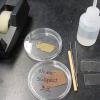
Crime Scene Investigation (CSI) with Powdery Mildew Fungi
Source Institutions
This exercise can be used to stimulate the investigative nature of learners as they use forensic plant pathology techniques to prove the learners' innocence in a mock murder investigation.
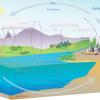
The Carbon Cycle and its Role in Climate Change: Activity 1
Source Institutions
In this activity (on page 1), learners role play as atoms to explore how atoms can be rearranged to make different materials.
Piece It Together: Puzzle Hunt
Source Institutions
In this activity, learners follow clues to find five puzzle pieces, then assemble them. This activity works well with a whole group, individuals, or families.
Transparent Gelatin
Source Institutions
In this optics activity, learners explore how they can make gelatin stop light, but not stop them from seeing fruit suspended within.
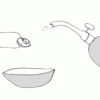
Physical Change
Source Institutions
In this activity, learners use heat to separate zinc and copper in a penny. This experiment demonstrates physical properties and how physical change (phase change) can be used to separate matter.
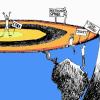
Earth Walk
Source Institutions
In this hands-on and feet-on excursion, learners take a science walk to visualize the planet's immense size and numerous structures, without the usual scale and ratio dimensions found in most textbook
Mystery Jars: Estimate Contents
Source Institutions
This activity puts a mathematical twist on the familiar “guessing jar.” No guesses allowed, estimates only.
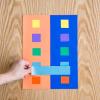
Color Contrast
Source Institutions
Do you have a hard time matching paint swatches with your furniture? When you consider human perception, color is context dependent.
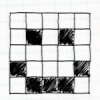
Passion for Pixels
Source Institutions
In this technology activity, learners explore digital imaging and pixels. Learners "transmit" an image to a partner by creating an image on grid paper.
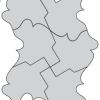
Exploring Tessellations (Grades 6-8)
Source Institutions
In this activity, learners design unique tiles and make repeating patterns to create tessellations. This activity combines the creativity of an art project with the challenge of solving a puzzle.

Magnetic Shielding: Magnetic lines stop here
Source Institutions
Testing magnets is always a fun pastime, but here, we're going beyond "will it attract the magnet?" In this activity, learners will investigate which materials allow magnetic fields to pass through or
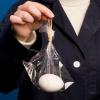
Egg Bungee
Source Institutions
Learners attach an egg to a rubber-band bungee cord and drop the egg.
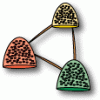
Mighty Molecules
Source Institutions
In this activity, learners use marshmallows and gum drops to construct seven models of molecules. Learners classify (solid, liquid or gas) and draw diagrams of the molecules.
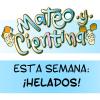
¡Helados!
Source Institutions
En esta tira cómica, Mateo y Cientina emplean su conocimiento de la química y las medidas para esta actividad deliciosa - ¡hacer helado!
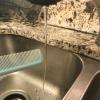
Static Water
Source Institutions
In this activity, learners will use static elecricity to bend a stream of water without touching it. Learners will explore physics and cause and effect through this activity.
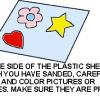
Shrinking Polymers
Source Institutions
In this activity, learners discover that some plastics will shrink when you get them hot. Learners bake polystyrene in a regular oven and discover what happens.
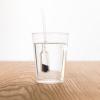
Eyedropper Hydrometer: Buoy your understanding of density
Source Institutions
Build a hydrometer (measures the density of a liquid) using a pipet or eyedropper.
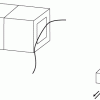
Physics in the Toy Room: Toppling Towers
Source Institutions
In this physics activity, learners use square blocks to explore how towers fall. Learners attach a piece of string to the side of a block and then construct a tall tower on top of this base block.
Pour Some: Measure Serving Size
Source Institutions
Make snack time into measuring time and learn to read Nutrition Facts labels. Try this when you’re using “pourable” foods, such as cereal, yoghurt, or juice.
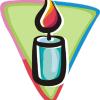
Burning Issues
Source Institutions
Learners use a candle to investigate the products of combustion. When a glass rod is held over a lit candle, the candle flame deposits carbon on the rod.
